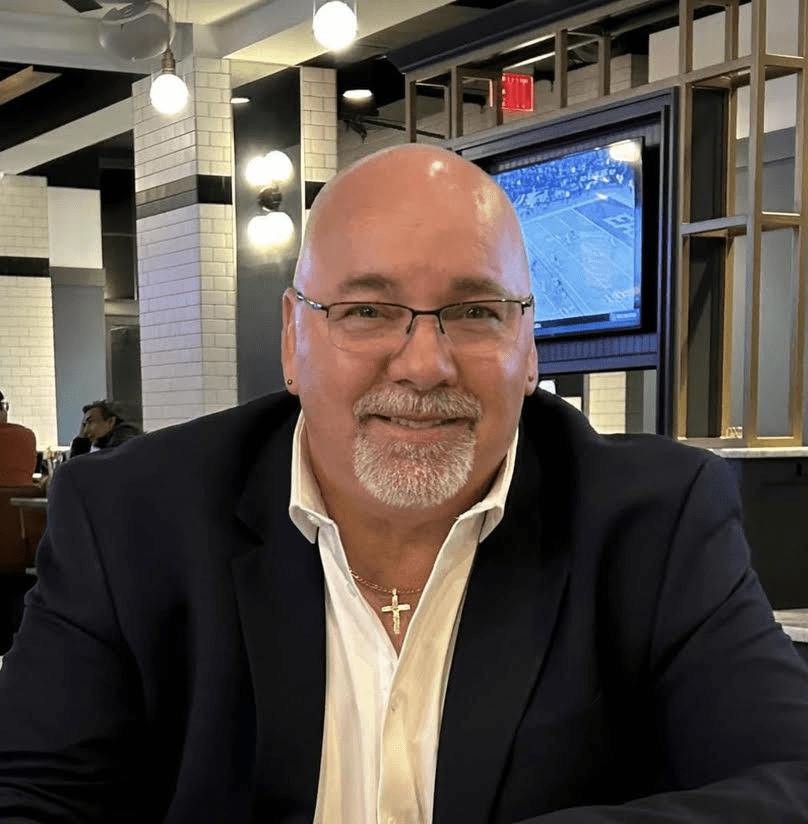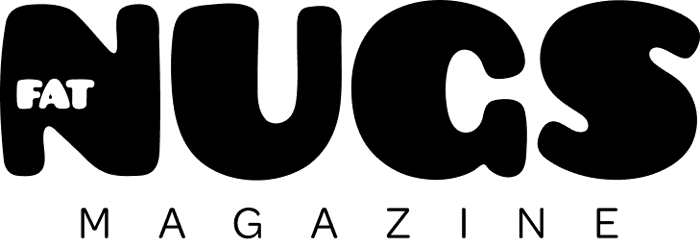Editor’s Note: The topic of cops in cannabis is controversial and hotly debated – and rightly so. It’s not a question of whether people can change their minds (of course they can), but if change can truly come from inside a broken system, and whether people who perpetuated the harm from the War on Drugs should be able to profit from legalization.
At Fat Nugs, we do not condone any of the actions law enforcement takes against members of the cannabis or psychedelics community, or the harm caused by decades of prohibition enforcement. In the same breath, this platform is one for conversation about and around the plant. The subject of the interview, this article, and whether to post it, was the subject of intense discussion between team members on whether this fit Fat Nug’s ethos. We did not come to a consensus. Ultimately, we decided to share it in hopes it will spark a discussion for you, too.
–Jessica, Editor
An Interview With Tim Johnson
Tim Johnson is a former law enforcement officer and private investigator, as well as an airman with top-secret nuclear clearance. He has volunteered for Meals on Wheels and a constitutional rights nonprofit. Johnson holds a handful of degrees and certificates, plus a state barber’s license from Ohio State College. Highly active in Ohio’s cannabis scene, he also works tirelessly as a cannabis advocate and drug policy reform warrior, receiving numerous recognitions for his efforts. Recently, Johnson received the 2025 Ohio Cannabis Activist of the Year award.
After 20 years in law enforcement and witnessing the unjust criminal penalties associated with cannabis convictions—as well as the societal, judicial, and personal wounds inflicted by these infractions—he felt compelled to “just do something.” Tim started his about-face by becoming an advocate for consumer protection rights and criminal justice reform. From there, he helped introduce a series of white papers, aiding medical patients and bolstering the state’s hemp program.

Jack Gayer: In your capacity in law enforcement, did you ever have to arrest someone for cannabis possession? If so, how did that sit with you, past and present?
Tim Johnson: Yes. Law enforcement is a career that I chose, knowing someday I would have to make a cannabis arrest. Being naive at the time, I thought I might be able to educate some in the career field and make a difference. That didn’t go well.
Being a consumer during my time in the military, through college, and in my career in law enforcement, the actions I took most certainly affected me then and now. I knew cannabis was not a criminal or public safety problem but rather a tool for LE [law enforcement] to use in drug policy enforcement, probable cause searches, and to intimidate suspects and witnesses into providing incident statements. To this day, I think of these incidents and often wonder how those victims are doing.
I had thoughts of quitting LE, but would remind myself I could still help make changes, somehow, from the position I held.
In the long run, it was proven to be the right decision by providing me with the knowledge I possess today in criminal justice reform as a legislative policy advisor and subject matter specialist around cannabis and other drug policy reform bills.
My cannabis arrests occurred in training or while working with partners who were against cannabis. I was forced to take action as I swore an oath, or I had to find another career. I knew from the inside I could be of more value to change.
One afternoon during a solo routine patrol, I approached a young man—nineteen years old—sitting on a park bench next to his bicycle. As I approached, I could smell and noticed half of a joint cupped in his hand. While conversing with him, being fresh out of training, my supervisor arrived on the scene for a checkup. He, too, noticed the half joint and inquired if I was going to take action and make an arrest. The citation was issued, and the young man received a conviction. The result was loss of a school grant, loss of a part-time job, eviction from his parents’ home, and a driving suspension, even though he owned no vehicle. I even requested the court to dismiss the case with court fees, only to no avail.
Against departmental policies, I did take it upon myself to work with this young man over the next eighteen months in getting him back in his parents’ home, a new job, back in college, and his driving privileges restored. That still plays in my thoughts today, 28 years later, a different form of PTSD, I guess.
JG: How did your experiences in law enforcement inform your opinions on cannabis?
TJ: I found enforcement policies and departmental protocols geared toward drug activities only to be a tool to be disruptive to societal, officer, and personal safety. The destruction of lives, removal of children from homes, loss of employment, loss of school grants, and more have exceeded their cause.
Perhaps the most disturbing policy I witnessed was the building of Drug Seizure Asset Funds, which police departments found to be their secondary budget. This created a cavalry of officers employing numerous traffic stops in search of the simplest probable cause tool to use to locate drugs and seize any monetary reward they could. It further created impressive supervision positive evaluations for the officers with attaboy compliments. These actions, simply, are not what Law Enforcement was about. Building community relations and vigilantly protecting communities from much more serious criminal elements provided safer communities for all.
JG: What first got you interested in cannabis as part of your career?
TJ: My first interest in my professional cannabis career came upon my retirement after serving a twenty-year career in law enforcement. Having witnessed the unjust criminal penalties in cannabis convictions and the various forms of societal, personal, and judicial harm they brought, I felt this was my opportunity to “just do something.” So, I became involved as an advocate for consumer protection rights and criminal justice reform in an Ohio constitutional amendment attempt, which failed at the polls. This led me to work with a nurse, pharmacist, and an advocate to introduce a white paper to create a legislative cannabis program in Ohio for medical patients. After our success in creating a medical cannabis program, I followed through with co-authoring a white paper to create a legislative hemp program in Ohio.
My journey continued as a legislative policy advisor on several bills, attempting to create a legislative adult choice cannabis program. Ohio’s success came in 2023 with a victory at the polls. From there, I have continued to participate as a policy advisor, introducing language to protect patients, veterans, and consumer rights.
JG: Did you face any blowback when you transitioned from working in law enforcement to working in cannabis?
TJ: The pejorative blowback typically came from the cannabis community, with an understanding that there was a lack of trust as a result of the career I came from. Professional blowback from those I served with was rare. Mostly, I received support from other officers who knew cannabis was not a drug or a safety problem for us. Their support was impressive, as many were consumers themselves in a low-profile circle of friends or as a single unit. It was a far safer relief in easing our ailments with cannabis use rather than relying on alcohol or pharmaceuticals.
My first blowback came from the cannabis community, claiming I was an undercover agent with the DEA as I traveled the state with senators to hear from the cannabis patients what their ailments might be. I was labeled a crooked cop and a snitch as a result of my aggressive actions to make change. As time passed, and it was understood I was making changes for the betterment of criminal justice reform for consumers and in protecting their various rights, I became accepted and appreciated, as there are few of them who will speak up.
JG: How have your opinions on drug policy changed, if at all, over the years?
TJ: My opinions remain the same in presenting a sharp awareness of the fact that our “War on Drugs” and the enhanced penalties employed in the judicial sector have been an epic failure, have cost trillions of dollars, have cost millions of lives, and have corrupted and bogged down our judicial system. I stand strong that drug addiction policies are failures in criminal enforcement and should be geared toward civil penalties with more robust rehabilitation support services.
You can’t punish addiction out of an addict. Addicts need several avenues of support, care, and concerned friends and family members to recover, if it’s possible at all.
We have seen a resurgence of re-evaluating substance abuse. Now we need to see laws changing and the stigma disappear.
JG: Regarding the drug war, do you think the demonization of the “drug user” as the culprit of all of society’s ills is a widespread belief, or is it a fear-mongering tactic used by a select few?
TJ: The demonization of the drug war, starting in the Anslinger days, definitely played a leading role as a culprit in stigmatizing societal viewpoints and beliefs about drug users. The implementation of the DARE program further solidified and enhanced these same beliefs. As a fear-mongering tool today, it is definitely employed, as we saw it used in an attempt to stop Ohio’s ballot initiative to legalize cannabis in 2023. Lawmakers, parents, some LE, religious organizations, and more continue to dumb down their knowledge of the old and new sciences of drug use issues today.
JG: Finally, do you think education on “drugs” is adequate for law enforcement officials? Or is there room for improvement in this area? For example, some people still believe antiquated information, such as “marijuana is a gateway drug.”
TJ: Educational awareness about drugs must become a paramount concern for LE. Educational drug awareness courses for LE have been and are an epic failure in their training. An officer receives very little training in their academy’s basic training courses. Once on the street, officers learn as they go. Some assignments to task forces may lead to additional training for those officers, which usually comes from less informed educators.
There is definite room for mandated CEU courses covering awareness of new and old illicit drugs and pharmaceuticals. The “gateway” theory is just that, a theory. The US government-sanctioned LaGuardia Report, 1944, covers this fallacy. LE could definitely do better through mandated training on substance abuse courses required every few years as updates. Training should also be accepted from those with hands-on experience and real-world sciences.


